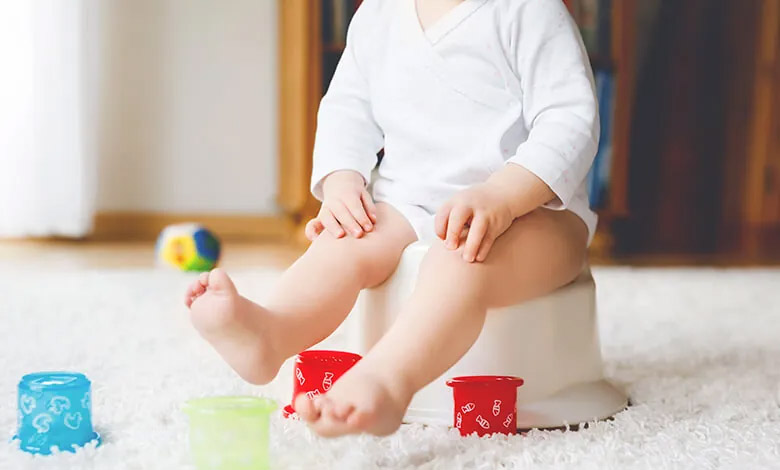- Reflux is common for babies, and usually causes no problems
- Sometimes reflux causes complications which require medical help
- See your doctor if you are concerned – don’t self-diagnose
Is my baby’s reflux normal, or is something wrong?

Key points
A burning sensation in the chest and a yucky sour taste in your mouth … reflux isn’t pleasant for anyone. For babies, reflux is common. Essentially it means food from their stomach is coming back up the food tube and into their mouth. Most of the time it’ll be swallowed back into the stomach, but sometimes a baby will regurgitate it (sometimes doctors call this posseting).
Reflux usually causes no problems and most babies grow out of it. However sometimes reflux is a sign your baby might need medical attention. We sought the help of Dr Preeya Alexander as a GP and health expert to help you understand what’s going on.“We have a pipe called the oesophagus that takes milk – and food, in the case of adults –from the mouth to the stomach,” she explains. “There is a sphincter which sits between the oesophagus and the stomach to try and prevent the contents of the stomach from coming back up into the oesophagus. Reflux is when you can get the stomach contents coming back up into the oesophagus and it is very normal in young infants because the sphincter is immature and not yet as strong as it should be.”You can find out more about the signs of reflux, and get advice on how to manage it, here.
What is normal reflux?
So how can you tell whether your baby’s reflux is normal or problematic?
Dr Preeya says normal reflux is known as gastro-oesophageal reflux.“The stomach contents pass into the oesophagus, and you might notice your infant has some effortless vomits or possets,” she explains. “It is common and it resolves on its own as the sphincter develops and matures.”
A good indication that your baby falls into this ‘normal’ category would be that they’re otherwise healthy.
“The infant in this case is growing well and thriving, and the condition does not tend to cause infants to cry excessively or be irritable,” Dr Preeya says. “The child has some effortless vomits now and then.” Dr Preeya says this type of reflux doesn’t require medical intervention.
“As the sphincter strengthens the issue tends to resolve,” she says, adding: “We can suggest some simple supportive measures like holding the infant upright for 30 minutes after a feed which can help.”
What about abnormal reflux?
Reflux becomes problematic when it causes complications – which is known as gastro-oesophageal reflux disease (often referred to as GORD).
GORD can involve vomiting, fussiness, distress, problems gaining weight and choking, coughing or wheezing during feeds – find out more here.
“GORD is a different entity to gastro oesophageal reflux alone and tends to have serious flow-on effects,” says Dr Preeya.
A 2018 medical review found that the best way to manage GORD is by getting education and reassurance from a healthcare professional as well as guidance on nutritional solutions, with medication being a last resort.
When should I see a doctor?
If you think your baby might have GORD, it’s important to get medical advice.
“Parents should run this by someone like their GP, maternal child health nurse or paediatrician if they are concerned,” says Dr Preeya. “Nothing like this should be self-diagnosed because it can lead to treatments or interventions that are not required.
“If you think your child has reflux, we will take a full history and nut out what is happening with feeds, if there is vomiting, etc, and perform an examination including an abdominal examination and a check on growth.”
Reflux can also be a sign of cow’s milk allergy – learn more about the condition here.
REMEMBER: This article is not to be substituted for medical advice. If you’re concerned about your baby crying excessively, or have questions about reflux, cow’s milk allergy, GORD or any other conditions, please speak to a healthcare professional such as a pharmacist, GP or maternal child health nurse.
Disclaimer: Dr Preeya Alexander is an independent expert who was compensated for her time.
- https://www.nhs.uk/conditions/heartburn-and-acid-reflux/
- https://www.betterhealth.vic.gov.au/conditions-and-treatments/infant-refluxhttps://www.rch.org.au/kidsinfo/fact_sheets/Reflux_GOR_and_GORD/
- https://nutricia.com.au/aptamil/parents-corner/nutrition-essentials/how-to-help-soothe-your-babys-reflux-or-regurgitation/
- https://www.ncbi.nlm.nih.gov/pmc/articles/PMC6120453/
Related articles

Get in touch with our Careline experts
When your little one is unhappy or unwell you want reliable support from a trusted source. Our Careline team of nutritionists, dietitians and midwives specialise in infant and child health, offering free nutrition, feeding and product information.
Every feeding journey is unique
Not every parent can produce breast milk. No matter what choice you make, we will support your unique feeding journey.
We at Nutricia believe in providing the best nutrition for babies, which is why we recognise breast milk is uniquely superior for babies as it provides many benefits. It is important that mums have a healthy diet to support breastfeeding. A decision not to breastfeed, or partial bottle feed, may reduce breast milk supply making it difficult to reverse. The cost and social implications of using feeding methods should be considered. Always seek professional advice about feeding your baby. Ensure formula is used as directed as improper use can affect baby’s health.
REMEMBER: The information on this page is general only. If you have any concerns about your baby’s poo or questions about constipation or any other health concerns, please speak to a healthcare professional, like a Pharmacist, GP or Maternal Child Health Nurse.



